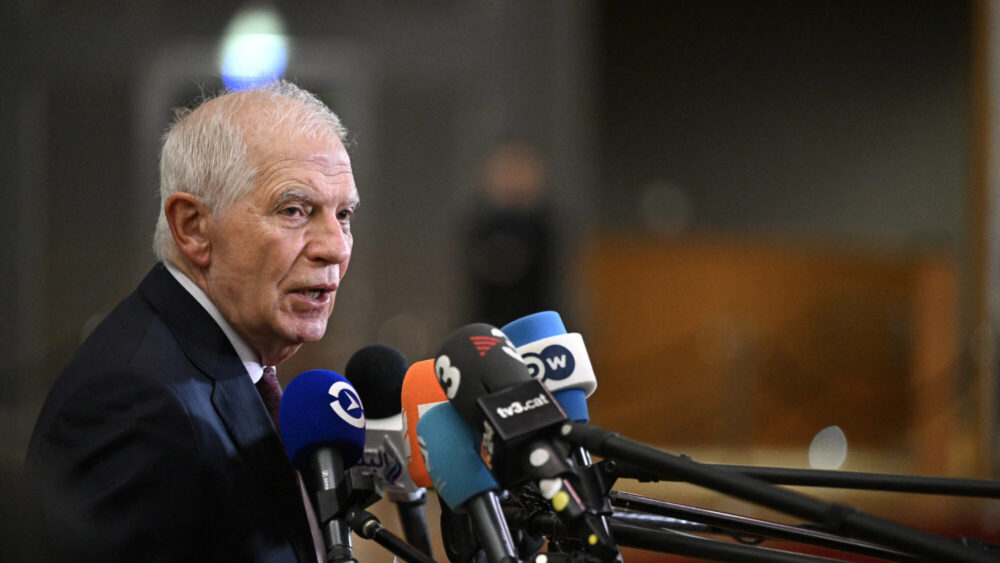
High Representative of the European Union for Foreign Affairs and Security Policy Josep Borrell
Photo by JOHN THYS / AFP
The European Union is working on yet another plan to assist Ukraine militarily, with €20 billion to be handed out over the next four years. The plan was introduced at the EU foreign affairs ministers’ meeting on Monday, January 22nd, and is strongly opposed by Hungary.
“The year is new, but the mood is old. The war psychosis of old remains. Nobody is willing to deviate from the path of a failed strategy,” Hungarian Foreign Minister Péter Szijjártó told journalists in Brussels.
Addressing the Brussels meeting on a video call, Ukraine’s Foreign Minister Dmytro Kuleba urged EU ministers to ramp up their support for Ukraine and also to approve a long-term support programme—one blocked by Hungary at the last European Council summit in December.
Both the €20 billion worth of weapons supplies and another €50 billion in financial support would come out of the EU common budget, requiring the approval of all member states. The latter issue will be discussed at an emergency meeting of prime ministers on February 1st, where Hungarian PM Viktor Orbán will be pressed to allow some sort of deal to emerge. Orbán said EU funding to Ukraine must not be granted from the EU’s budget. Hungary, he added, does not want to engage in collective borrowing and go into debt along with other countries.
Hungary has consistently rejected weapons deliveries to its Eastern neighbour, saying that weapons supplies only fuel the war, when there should in fact be attempts to broker a peace deal between Ukraine and Russia. Hungary is already blocking the disbursement of the latest €500 million tranche from the so-called European Peace Facility, where member states are reimbursed for weapons they send Ukraine. The country will consider lifting its veto if Ukraine guarantees that Hungarian companies won’t be added to its list of international war sponsors, as was the case with OTP Bank, Hungary’s largest lender.
Péter Szijjártó told The European Conservative that he was the only minister on Monday to clearly object to the newly proposed facility to assist Ukraine militarily. Szijjártó also said he would discuss these issues when he meets his Ukrainian counterpart Kuleba on January 29th. Relations between the two countries soured since well before the war, when the Ukrainian parliament adopted laws that restrict ethnic minorities’ language rights, including those of the Hungarian community in Ukraine.
As the only member state to oppose the continued financing of Ukraine, Hungary will face mounting pressure over the next few weeks. Before Monday’s meeting, EU Foreign Affairs Chief Josep Borrell told Ukrainians not to worry, as “European support continues as strong as ever, and it will continue.”
The war in Ukraine is slowly approaching its second anniversary; a conflict that has reached a stalemate, with battlelines barely moving in 2023.
